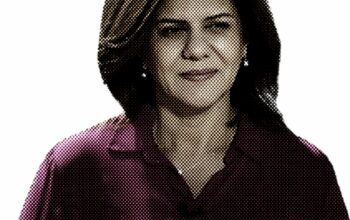As the use of social networks increases, they generate a virtual reality. This means of communication, in turn, generates digital identities, giving rise to a public digital area. In this sense, social networks cannot be isolated from socio-political reality. Social networks have reached such a point that they can establish the political agenda. Tech companies have begun to behave like states and yearn to become “governments without voters.” Social media platforms are far from reinforcing democracy. Instead, what they do is give examples of digital fascism with countries such as Turkey being one of the main victims of this.
The socio-political reality has a knock-on effect and at the same time is affected by the media due to their own agenda, where information disclosed through these media spreads rapidly. The work of traditional activism has gone digital. Activists of all kinds take advantage to organise faster and more effectively, becoming qualitatively superior. Likewise, activists have the possibility of influencing, positively or negatively, the political mechanisms of any country and altering their decisions. In this sense, it is of the utmost importance to develop an adequate awareness among the population when it comes to the use of these media especially in the form of digital harassment. Likewise, individuals must be careful with their own digital behaviour and not leave a negative footprint whilst using these platforms.
In the political arena, the various politicians attempt to achieve rhetorical superiority over their rivals. It can be said that social networks have become a tool that completes the socio-political reality. However, users tend to follow those that are more in line to their ideologies and consequently close themselves to new ideas. Users of social networks create their own doctrines, where sociological reflections change the way that we organise our lives and relay our own politics. The marginal language that is often used in media causes a distance between individuals, as well as sharpening existing prejudices rooted in society. As far as political communication is concerned, these platforms will allow virtual rallies to be held, with appearances of the holograms of political leaders in content aimed exclusively at specific audiences.
The source of the information and its accuracy are presented as the main problems and challenges for social networks. Contrary to traditional media, users also generate content apart from consuming it. This requires a mechanism to verify the content generated by these users. Organised and computerised bots “trolls” can influence the political opinion of internet users and can even determine the political agenda, even if temporarily. The borders between fact and fiction have already begun to disappear. Perceptions override reality and people are dragged to a point where they are unable to differentiate between the truth and lies. Which in turn has seen a necessary promotion of digital campaigns which inform, fight and fact-check disinformation campaigns on social platforms.
Social networks have become the new battlefield of politics. If a political ideology and its leaders do not have a presence in social networks, they will be ignored by a considerable part of society. Users realise this and shift their political campaigning to these media platforms where they express such ideologies, creating an agenda which reacts to political and social developments. The United States is constantly fighting a battle against terrorist organisations, not just on the field but on social networks that make use of constant bots and fake accounts. In this sense, it is essential to start programming our own applications at a national/regional level in the face of this imperialistic virtual dictatorship steered by the large digital corporations.
The diversity of opinions and reliable information are necessary aspects for minors to develop freely, building their own identity and personality. Filter bubbles and echo chambers can help mould a comfortable and passive character, which tailor consumption habits. Yet more worryingly it can affect them by restricting their access to information and reducing their capacity for knowledge. This unfortunately can cause a loss of curiosity and spontaneity, a natural process of growing up for both children and adolescents. To avoid this misinformation, cultural and ideological isolation, there should be guidelines particular for these mentioned age groups regarding social media. In schools they should be educated on how filter bubbles work and their consequences on how they can adapt or “pop” the bubble. Relaying such information will promote their curiosity and the habit of research, encouraging them not to settle for a single channel or digital medium and to complement the information they receive on social networks.
Effectivity it is not to discourage use on these platforms but instead to encourage them to take advantage of the whole internet which offers immense learning opportunities to broaden their perspectives. Consequently, this should promote a greater emotional intelligence of a variety of values such as empathy and richness of diversity. Society is increasingly aware that the internet, as a means of information, is a tool that can influence our opinions. Teaching minors to take advantage of it and exploit it properly also depends on the example we offer them and how we teach them to use it. Despite the advancement of social networks, they present a constant challenge for society, culture itself and even the law. Many cases in court have solely relied on certain comment published from the defendant’s social network. Unless it is clear and obvious, it causes a dilemma on their authenticity as pivotal evidence due to emotional context and interpretation which differs from the traditional form of communication where vocabulary is more selective or at the very least does not leave a trace.
Countless celebrities and politicians have had their reputation damaged usually by idle scandalous comments that have been backtracked from many years back whilst it in standard for many employers to do the same whilst researching job applicants. The true reality of social media is that the innocent age of an arena of no consequences is well and truly over. In fact, depending on status, a virtual voice maybe even more powerful than in person. This comes with greater responsibility and awareness, as they will always be a sitting target due to the fact there are always people out there regardless of their ideologies, who simply find joy in ruining, embarrassing or causing emotional damage to a person’s status. Ultimately, this overwhelming pressure can take its toll revealing a darker side of social media that is beyond the dubious persona that is often portrayed there by influencers. If it can happen to them, it can happen to anyone.
Sean Campbell



